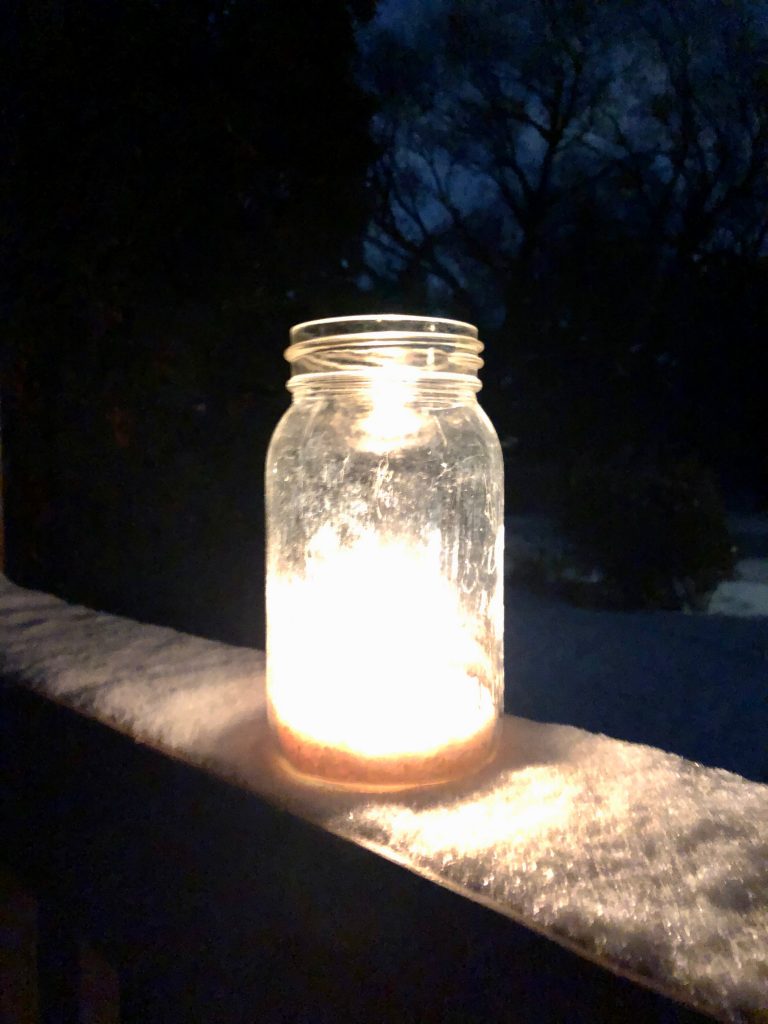
Lately I’ve been acutely aware of a certain dissonance that hangs in the air during the Advent season. If you (bravely) visit malls or grocery stores, you’ll hear songs about this “most wonderful time of the year.” And it’s true, isn’t it? Lights and glitter, food and gifts, it really is a beautiful time of year.
But it’s not all merry and bright.
During this very same season, darkness abounds as well. Fittingly, this is also the darkest season of the year in terms of sunlight (in our hemisphere). Our friends and family members are ill, and many are suffering. Our hearts are saddened as we are reminded of those who are not around the Christmas dinner table.
In some ways the rhythms of nature ring truer than many of our seasonal songs.
Author Jamie Wright, wrestling during this season with grief and pain, summed up this dissonance beautifully in a recent post:
“Sure, Joy to the World, and all that jazz — but when Heaven and Nature sing? Maybe sometimes they sing a sad song for the sad people. And maybe that’s enough.”
I’ve appreciated Richard Rohr’s reflections this month on darkness. He speaks to the importance of recognizing the darkness of the Advent season:
“Advent was once (and still can be) a time of waiting, a time of hoping without knowing, a time of emptying so that we can be filled by the divine Presence. Though you may be wrapping gifts, planning special meals, and spending time with family and friends, I hope you will also take time to allow the Advent darkness to do its work as well.”
Rohr’s reflections included a John’s Gospel: “the light shines on inside of the darkness, and the darkness will not overcome it.”
Somehow this word “inside” rang differently for me than how I’d normally heard it read. “Inside of” doesn’t strike me as the language of conquest, as we sometimes hear it. No, this is the language of perseverance. Of not giving in. A small light, maybe, but it won’t be swallowed up.
This weekend we’ll be observing the darkness during The Longest Night Run. A community of friends, running with and for friends. (Oh, what’s that? You’d like to join us? Please click here to sign up!) The funny thing about running itself is that it doesn’t fix anything. After a run you don’t have anything to show for your efforts but sore legs and snowy footprints. Similar to a song, once it’s done, it dissipates into the atmosphere.
But, moving through the night, we’ll acknowledge the darkness, and we’ll recogize the light that flickers persistently inside of it.
And, maybe that’s enough.